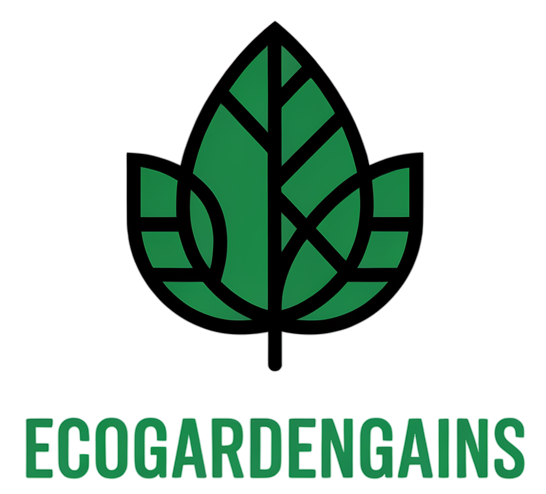Can I earn $1000 from blogging? Have you ever dreamed of turning your passion for writing into a lucrative side hustle? 💭💰 The allure of earning $1000 a month from blogging is tempting, but is it really achievable? While only 7% of bloggers rake in between $500 to $999 monthly, the truth is that most bloggers do generate some income, however modest it may be.
Picture this: starting with a mere $27 commission and growing it into a steady $1,700 monthly income. 📈 That’s exactly what one blogger accomplished through dedication and smart strategies. But here’s the burning question: Can you replicate this success? In this post, we’ll dive deep into the world of profitable blogging, exploring everything from choosing the right niche to optimizing your blog for maximum conversions. We’ll uncover the secrets of creating high-quality content that keeps readers coming back for more and reveal tried-and-true monetization strategies that can turn your blog into a money-making machine.
So, whether you’re a blogging newbie or a seasoned writer looking to boost your earnings, buckle up! We’re about to embark on a journey that could transform your blogging hobby into a thriving online business. 🚀 Let’s explore how you can potentially earn that coveted $1000 monthly income through smart work, strategic planning, and a dash of creativity.
Understanding the $1000 Blogging Goal

A. Realistic expectations for blog earnings
When considering the potential to earn $1000 from blogging, it’s crucial to set realistic expectations. Blogging income can vary significantly based on several factors:
- Experience level
- Niche selection
- Monetization strategies
For beginners, monthly earnings typically fall under $500, primarily from ads and affiliate marketing. As bloggers gain experience and diversify their income streams, earnings can increase substantially:
| Experience Level | Monthly Earnings Range |
|---|---|
| Beginners | Under $500 |
| Established | $1,000 – $5,000 |
| Seasoned | $5,000 – $50,000 |
| Top Bloggers | $100,000+ |
It’s important to note that most bloggers earn minimal amounts initially, with potential for growth over time.
B. Factors influencing blog income
Several key factors impact a blog’s earning potential:
- Niche selection: Some niches, like personal finance and technology, command higher ad rates.
- Audience size and engagement
- Content quality and SEO effectiveness
- Monetization strategies employed
- Use of email marketing and social media for traffic generation
C. Timeframe for reaching $1000
The timeline for reaching $1000 in blogging income varies:
- Most bloggers don’t see significant earnings until after their first year
- New bloggers may earn between $30,000 to $50,000 in their first year
- By the second or third year, earnings of $1,000-$5,000 monthly are possible
- After 5-10 years, average monthly earnings can reach $5,450.90
Success in blogging requires consistency, patience, and adaptability. While $1000 is an achievable goal, it’s essential to understand that it may take time and effort to reach this milestone.
With this understanding of realistic expectations, factors influencing income, and potential timeframes, we’ll now explore the critical next step in your blogging journey: Choosing a Profitable Niche. This decision can significantly impact your earning potential and overall success as a blogger.
Choosing a Profitable Niche
Now that we have a clear understanding of the $1000 blogging goal, let’s dive into the crucial step of choosing a profitable niche. This decision can significantly impact your ability to reach that income target.
A. Researching high-paying niches
When aiming to earn $1000 from blogging, it’s essential to focus on niches with high monetization potential. Here are some lucrative niches to consider:
- Digital marketing
- Tech and AI
- Blogging and making money online
- Health and fitness
- Personal finance and investing
- Recipes and food
- Personal development and self-care
Each of these niches offers unique opportunities for content creation and monetization. For example, the digital marketing niche is projected to reach $807.92 billion by 2028, while the AI market is expected to hit $407 billion by 2027.
B. Balancing passion and profitability
While choosing a profitable niche is crucial, it’s equally important to select a topic you’re passionate about. This balance ensures that you can create engaging content consistently. Consider the following factors:
- Personal interest
- Expertise or willingness to learn
- Long-term sustainability
C. Analyzing competition in your chosen niche
| Aspect | Consideration |
|---|---|
| Saturation | High competition often indicates demand |
| Uniqueness | Focus on your authentic perspective |
| Keyword research | Identify profitable keywords within your niche |
Even in competitive niches, there’s room to stand out by offering unique insights and experiences. Use keyword research tools to guide your content creation and improve visibility on search engines.
D. Identifying target audience needs
To ensure your blog resonates with readers and achieves its income goals, focus on:
- Researching common questions in your niche through forums and online communities
- Providing valuable, informative content that addresses these needs
- Sharing personal experiences to enhance credibility and connection
- Staying updated with trends in your chosen field
By aligning your content with your audience’s needs, you’ll be better positioned to monetize your blog effectively. Remember that while narrowing down your niche can enhance focus, broader niches can also be successful if managed well.
With a profitable niche selected, we’ll next explore the critical aspect of creating high-quality content that will engage your audience and drive your blog towards that $1000 goal.
Can I earn $1000 from blogging?
Creating High-Quality Content

Now that we’ve covered choosing a profitable niche, let’s dive into creating high-quality content that will engage your audience and help you reach your $1000 blogging goal.
Developing a content strategy
To create a successful blog, it’s crucial to develop a comprehensive content strategy. Start by clearly defining your blog’s purpose and topic, ensuring it aligns with your chosen niche. Document this purpose statement for future reference. Next, conduct thorough keyword research to understand what your potential readers are searching for. Use tools like Google Ads Keyword Planner and Keywords Everywhere to identify relevant keywords and topics.
Writing engaging and valuable posts
Focus on creating compelling content that resonates with your audience. Address their challenges and provide valuable insights. To ensure consistency and maintain a regular posting schedule, consider the following steps:
- Build a content backlog with various post types
- Establish an editorial calendar
- Define roles for content creation and management
- Incorporate AI tools for efficiency
Optimizing for SEO
To improve your blog’s visibility and attract organic traffic, implement these SEO best practices:
- Conduct thorough keyphrase research
- Align content with customer needs and search intent
- Utilize tools for competitor insights
- Update and repurpose existing content to improve search rankings
Incorporating multimedia elements
Enhance your blog posts by including various multimedia elements:
| Multimedia Type | Benefits |
|---|---|
| Images | Improve visual appeal and break up text |
| Videos | Increase engagement and time on page |
| Infographics | Present complex information in a digestible format |
| Podcasts | Cater to audio learners and expand reach |
Consistency in posting schedule
Maintain a consistent posting schedule to keep your audience engaged and improve your blog’s authority. Use an editorial calendar to plan and organize your content creation process. This approach not only aids in consistent production but also ensures that your content effectively addresses audience needs while promoting your business goals.
With a solid content creation strategy in place, you’ll be well-positioned to move on to the next crucial step: monetization strategies. By consistently providing valuable, optimized content, you’ll build a loyal readership that will be more receptive to your monetization efforts.
Monetization Strategies

Now that we’ve covered the importance of creating high-quality content, let’s explore various monetization strategies to help you earn $1000 from blogging.
A. Display advertising
Display advertising is a popular method for generating revenue from your blog. Here’s how it works:
- Use ad networks like Google AdSense to easily integrate ads into your content
- Earn money based on traffic clicks or views
- As your blog’s popularity grows, so does the value of your ad space
B. Affiliate marketing
Affiliate marketing allows you to promote products or services and earn commissions on sales generated through your referral links.
- Choose trustworthy affiliate partnerships
- Adhere to FTC disclosure requirements
- Consider programs like Amazon Associates or CJ Affiliate
| Affiliate Program | Advantages |
|---|---|
| Upwork Affiliates | Diverse service offerings |
| Amazon Associates | Wide product range |
| CJ Affiliate | Multiple brand partnerships |
C. Sponsored content
Companies may pay you to write posts about their products, especially if you have a sizable following.
- Align sponsorships with your blog’s niche
- Use platforms like Blog Meets Brand or Upfluence to connect with brands
- Maintain transparency with your audience about sponsored posts
D. Digital products and courses
Leverage your expertise by creating and selling digital products:
- eBooks
- Online courses
- Webinars
- Gated content or exclusive members areas
These options allow you to monetize your knowledge and provide value to your audience.
E. Coaching and consulting services
Once established as an expert in your field, consider offering:
- One-on-one coaching
- Group consultations
- Freelance writing services
These personalized offerings can be highly lucrative and help deepen your relationship with your audience.
With these monetization strategies in place, the next crucial step is building traffic and audience to maximize your earning potential. By focusing on driving targeted traffic to your blog, you’ll be better positioned to implement these strategies effectively and work towards your goal of earning $1000 from blogging.
Building Traffic and Audience

Now that we’ve covered monetization strategies, let’s focus on building traffic and audience for your blog, which is crucial for achieving your $1000 blogging goal.
Leveraging social media platforms
Social media is a powerful tool for driving traffic to your blog. By actively promoting your content on platforms like Twitter, Facebook, and LinkedIn, you can significantly increase your reach. Create engaging posts that tease your blog content and encourage users to click through. Remember to use eye-catching headlines and visuals to stand out in crowded social feeds.
Guest posting on popular blogs
Guest blogging is an effective way to gain exposure and attract new readers. By contributing high-quality content to established blogs in your niche, you can:
- Build backlinks to your site
- Increase your credibility
- Tap into existing audiences
When guest posting, focus on providing value to the host blog’s readers while subtly promoting your own expertise.
Email marketing techniques
Building an email list is crucial for maintaining direct communication with your audience. Here are some effective email marketing strategies:
| Technique | Description |
|---|---|
| Welcome series | Automate a series of emails to introduce new subscribers to your blog |
| Content roundups | Send weekly or monthly digests of your best content |
| Exclusive content | Offer subscribers unique content not available on your blog |
| Segmentation | Tailor your emails based on subscriber interests and behaviors |
Networking with other bloggers
Collaborating with fellow bloggers can significantly boost your traffic. Engage in these networking activities:
- Participate in online communities related to your niche
- Comment meaningfully on other blogs
- Attend industry events and conferences
- Collaborate on joint content projects
By building relationships with other bloggers, you can cross-promote content, share insights, and tap into each other’s audiences.
With these traffic-building strategies in place, you’ll be well-positioned to optimize your blog for conversions, which we’ll explore in the next section. Remember, consistent effort in growing your audience is key to reaching your $1000 blogging goal.
Optimizing Your Blog for Conversions

Now that we’ve covered how to build traffic and grow your audience, it’s crucial to focus on optimizing your blog for conversions. This step is vital in your journey to earning $1000 from blogging, as it helps turn your visitors into paying customers or subscribers.
Designing a User-Friendly Layout
A user-friendly layout is essential for keeping visitors engaged and encouraging them to take desired actions. Consider these key points:
- Simplify navigation to help users find information quickly
- Use heat mapping tools to analyze user behavior and optimize page elements
- Maintain a mobile-first design approach, as a significant portion of web traffic comes from mobile devices
Creating Compelling Calls-to-Action (CTAs)
Effective CTAs can significantly improve your conversion rates. Here are some strategies:
- Use clear and concise language
- Make CTAs visually distinctive
- Place CTAs strategically throughout your content
- A/B test different CTA variations to find the most effective ones
Implementing Email Capture Forms
Email capture forms are crucial for lead generation and building a loyal audience. Consider these tips:
- Keep forms simple and ask for minimal information
- Offer a valuable incentive (e.g., free eBook or exclusive content) in exchange for email addresses
- Use pop-ups strategically to capture emails without disrupting user experience
A/B Testing for Improved Performance
A/B testing is a powerful tool for optimizing your blog’s performance. Here’s a simple process to follow:
- Identify elements to test (e.g., headlines, CTA buttons, layouts)
- Create variations
- Split your audience and show different versions
- Analyze results and implement winning variations
| Element to Test | Variation A | Variation B |
|---|---|---|
| CTA Button Color | Blue | Green |
| Headline | “Start Your Blogging Journey” | “Earn $1000 Blogging Today” |
| Form Fields | Name and Email | Email Only |
Remember, conversion rate optimization is an ongoing process. Continuously monitor your blog’s performance and make data-driven decisions to improve your conversion rates. With these strategies in place, you’ll be better equipped to turn your blog traffic into revenue.
As we move forward, we’ll explore how to track and analyze your progress, which is crucial for understanding the effectiveness of your optimization efforts and making informed decisions to reach your $1000 blogging goal.
Tracking and Analyzing Progress

Now that we’ve covered optimizing your blog for conversions, it’s crucial to track and analyze your progress to ensure you’re on the right path to earning $1000 from blogging. Let’s dive into the essential aspects of monitoring your blog’s performance.
Setting up analytics tools
To effectively track your blog’s progress, you need to implement robust analytics tools. Here are some key platforms to consider:
- Google Analytics 4 (GA4)
- Google Search Console (GSC)
- HubSpot
- Semrush
- Databox
These tools provide comprehensive insights into your blog’s performance, helping you make data-driven decisions.
Monitoring key performance indicators
To gauge your blog’s success, focus on these crucial KPIs:
| KPI | Description |
|---|---|
| Traffic | Overall visits and growth trends |
| Social shares | Content likability and reach |
| Keyword rankings | Position in search results |
| Engagement rate | User interaction duration |
| Backlinks | External links to your blog |
| Conversions | Actions aligned with business goals |
Additionally, track metrics such as:
- Average views per post
- Inbound links per post
- Comments per post
- New blog leads
- Conversion rates (visits to leads, leads to customers)
- Subscriber growth (RSS and email)
Adjusting strategies based on data
Regularly analyze your data to identify:
- High-performing content
- Top traffic sources
- Seasonal patterns
- Popular posts
- Lead generation effectiveness
Use these insights to refine your content strategy, optimize underperforming areas, and capitalize on successful tactics.
Celebrating milestones and learning from setbacks
As you work towards your $1000 blogging goal:
- Set clear objectives and deadlines
- Create a systematic reporting process
- Recognize achievements, no matter how small
- Analyze setbacks to identify improvement opportunities
Remember, consistent measurement and analysis of these indicators will empower you to enhance your content offerings and achieve your blogging goals.

Earning $1,000 per month from blogging is indeed possible, but it requires dedication, strategic planning, and persistence. As we’ve explored, success in blogging hinges on choosing a profitable niche, creating high-quality content, implementing effective monetization strategies, building a loyal audience, and optimizing your blog for conversions. Remember that diversifying your income streams through methods like affiliate marketing, sponsored content, and digital product sales can significantly boost your earnings potential.
While the journey to $1,000 monthly may take time, it’s important to set realistic expectations and remain patient. Focus on continuously improving your content, engaging with your audience, and staying up-to-date with SEO trends and marketing strategies. By consistently applying the principles discussed in this post and tracking your progress, you’ll be well on your way to achieving your blogging income goals. Start today, invest in your education, and remember that every successful blogger started exactly where you are now.




